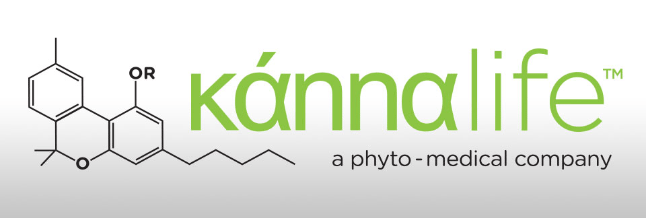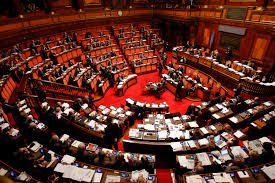It’s about technology transfer, not legalization
By ALICIA WALLACE | awallace@denverpost.com
PUBLISHED: August 28, 2016 at 12:01 am | UPDATED: August 27, 2016 at 10:03 pm
It may not have quite the same ring to it as a certain seven-digit phone number made famous by a 1980s pop hit, but 6,630,507 has become internet-famous since the U.S. Drug Enforcement Administration opted not to reschedule marijuana, leaving it in the category of drugs with no legitimate medical uses.
Since then, proponents of legalization have responded with a storm of social-media posts highlighting U.S. Patent No. 6,630,507, granted in 2003 to the U.S. Department of Health and Human Services and covering the potential use of non-psychoactive cannabinoids to protect the brain from damage or degeneration caused by certain diseases, such as cirrhosis. They’re telling the DEA to “talk to the hand,” writing “6,630,507” on their palms, hashtagging the number and linking to past articles on the topic.
The intent of the posts is symbolic, said Sam Mendez, an intellectual property and public policy lawyer who serves as the executive director of the University of Washington’s Cannabis Law & Policy Project.
“Naturally, it shows that there is a certain amount of hypocrisy that there is ‘no accepted medical use’ for cannabis according to federal law,” Mendez said. “And yet here you have the very same government owning a patent for, ostensibly, a medical use for marijuana.”
Mendez — like patent lawyers, the research arm of the HHS and the New York biopharmaceutical firm that’s working as an exclusive licensee under the patent — cautions that the existence of Patent No. 6,630,507 doesn’t signal that legalization is on the horizon.
“The government is allowed to file and obtain patents, and that has no bearing on the Controlled Substances Act,” Mendez said.
But it does indicate what could result if cannabis were rescheduled: an explosion of marijuana-related patents, Mendez said.
No. 6,630,507’s inception
The National Institutes of Health employs roughly 6,000 Ph.D.-level scientists, said NIH special adviser for technology transfer Mark Rohrbaugh, who holds doctorates in biochemistry and law. When one of those scientists invents a new technology or makes a new discovery, the NIH evaluates the result and determines whether to file for a patent.
Over the years, the NIH has conducted and funded research involving cannabis — both as a drug of abuse and for its potential therapeutic properties, NIH spokeswoman Renate Myles said.
In the case of No. 6,630,507, the researchers discovered that non-psychoactive compounds in cannabis may have antioxidant properties that could be beneficial in the treatment of certain neurological diseases, she said.
“This patent describes the therapeutic potential for cannabinoid chemical compounds that are structurally similar to THC, but without its psychoactive properties, thereby treating specific conditions without the adverse side effects associated with smoked marijuana,” Myles said in an e-mail.
The patent doesn’t prove the chemical compound is effective in the stated treatment, Rohrbaugh said. The compound would have to be purified, synthesized in a lab setting, subjected to extensive testing in animals and humans, and ultimately require U.S. Food and Drug Administration approval to show that it’s safe and effective for the intended purpose.
The intent behind patenting and licensing NIH discoveries is to keep technology that could potentially benefit the public from sitting idle, he said.
This sometimes requires looping in the private sector, he said. Laws made in the 1980s help entities such as universities and the government to make their discoveries accessible to others who are in a position to further the research and potentially commercialize the developments. The entities behind the discoveries typically receive payments as part of the licensing agreement.
NIH’s Technology Transfer Office advertises patents — including those related to cannabinoids — available for licensing on its website, and officials sometimes conduct outreach as well. The licenses often are packaged with some elements of exclusivity, Rohrbaugh said.
“It’s like a piece of land,” he said. “You wouldn’t build a million-dollar house on a piece of land you wouldn’t have some title to.”
Five years ago, the NIH granted New York-based Kannalife Sciences Inc.an exclusive license for the part of the technology outlined in the patent to develop cannabinoid- and cannabidiol-based drugs for the treatment of hepatic encephalopathy — brain damage that could result from conditions such as cirrhosis. Kannalife also has a non-exclusive license to develop drugs to treat chronic traumatic encephalopathy, a rare and progressive degenerative brain condition likely caused by repeated head trauma, Myles said.
“Other companies may also apply for licenses to use this patented technology to develop drugs to treat other neurological diseases where antioxidant properties of cannabinoid drugs may be beneficial,” she said. “The patent expires on April 21, 2019, after which anyone would be free to develop drugs based on these cannabinoids that, like all drugs, would require FDA approval to demonstrate safety and effectiveness in humans.”
No other companies have licensed portions of the 6,630,507 patent, she said.
Kannalife CEO Dean Petkanas did not disclose the specific terms of the licensing agreement, but he told The Cannabist that the deal includes milestone payments, a percentage of sales as well as royalties in “the six figures” to the government. The patent is valid in several jurisdictions, including the United Kingdom and Australia, he said.
Petkanas said his company “could not have gotten a better ruling” from the DEA.
“We’ve been building our business from the pharmaceutical side from Day One,” said Petkanas, a former executive at the investment firm depicted in the film “The Wolf of Wall Street.” “We want to be on the pharmaceutical side; everything we do has to be by the book.”
Kannalife, recently featured in a football-related Sports Illustrated reportregarding its research into therapies for chronic traumatic encephalopathy, is about to begin raising $15 million in private investments. The money would allow it to start clinical trials related to hepatic encephalopathy as soon as the first quarter of 2018. Petkanas said Kannalife anticipates eventually seeking orphan drug status — a special FDA designation for treating rare conditions. The company also contemplating conducting chronic traumatic encephalopathy-related trials in Europe.
“Does marijuana have medicinal benefit? Well, yeah,” Petkanas said. “But it can’t be targeted and qualified for repetitive use (without the FDA-approved research).”
That one arm of the federal government is poised to make money from cannabis-derived compounds, and another has approved synthetic cannabinoid drugs such as Marinol and Syndros, tells a story different from the one told by the DEA, which lumped together the hundreds of chemical compounds of cannabis as a Schedule I substance, said Gregory F. Wesner, a Seattle-based patent and trademark attorney for Lane Powell PC.
“The interesting thing here is basically the government being two-faced,” Wesner said.
If and when national legalization comes, it’ll trigger a swarm of new patent applications, said the UW Cannabis Law Project’s Mendez.
“That’s massive growth that does not occur every day or every year That’s the kind of growth you’re talking about once in a generation,” he said of the potential sales growth in the industry. “As part of that, you’re going to see many people and many businesses research this far more intensely and file for patents.”
An analysis conducted by Christopher Freerks, a Lane Powell patent administrator, shows that the PTO already has granted at least four dozen cannabis-related utility patents, including No. 6,630,507. The analysis does not include plant patents, which have been tougher to come by for some cultivators.
San Diego patent attorney Dale C. Hunt, an Open Cannabis Project board member who has degrees in botany, genetics and biology, said one would need to develop a completely new strain in order to land a patent.
If marijuana is rescheduled, it’s realistic to believe that the innovation could carry on in the laboratories of NIH scientists, he said. But for now, the federal government’s technology transfer and patenting actions around cannabis do not appear to be widespread.
“(Tech transfer) happens all the time,” Hunt said. “It obviously doesn’t happen all the time in cannabis.”
Patent No. 6,630,507: Why the U.S. government holds a patent on cannabis plant compounds








 I sostenitori di una politica più ragionevole sulla cannabis hanno ottenuto una piccola vittoria questa settimana quando l'Amministrazione Obama ha dichiarato che avrebbe autorizzato un maggior numero di istituti a coltivare marijuana per scopi di ricerca medica. Ma il Governo non ha colto l'opportunità di un cambiamento più significativo.
I sostenitori di una politica più ragionevole sulla cannabis hanno ottenuto una piccola vittoria questa settimana quando l'Amministrazione Obama ha dichiarato che avrebbe autorizzato un maggior numero di istituti a coltivare marijuana per scopi di ricerca medica. Ma il Governo non ha colto l'opportunità di un cambiamento più significativo.

 Impazza il “confronto” sulla legalizzazione della cannabis dopo che il disegno di legge e' partito col suo iter parlamentare. Abbiamo letto di chi, favorevole alla legalizzazione, vorrebbe “dannare i giovani” (1), e nello stesso anche -in modo piu' civile- che la “battaglia contro la legalizzazione della cannabis è una battaglia di civiltà e, soprattutto, una battaglia culturale. Non possiamo vendere fumo ai nostri giovani” (2). Solo per citare i piu' recenti. Ma se qualcuno pensava che avremmo sviluppato un confronto tra i pro e i contro in base ad argomentazioni, riferimenti scientifici, esempi di altre esperienze istituzionali, e' bene che si ricreda. I 1.300 emendamenti presentati da chi non e' d'accordo sulla legalizzazione ci dicono che, per l'ennesima volta, nel nostro Paese ci sara' il muro contro muro basato sugli sgambetti, i sotterfugi, le fregature, i colpi bassi, etc... cioe' tutto quel bagaglio che fa parte della non-cultura umana, economica, sanitaria ed istituzionale che e' il perfetto contrario di quello che ci vorrebbe per far capire -a chi e' favorevole e a chi non lo e'- e farsi un'opinione.
Impazza il “confronto” sulla legalizzazione della cannabis dopo che il disegno di legge e' partito col suo iter parlamentare. Abbiamo letto di chi, favorevole alla legalizzazione, vorrebbe “dannare i giovani” (1), e nello stesso anche -in modo piu' civile- che la “battaglia contro la legalizzazione della cannabis è una battaglia di civiltà e, soprattutto, una battaglia culturale. Non possiamo vendere fumo ai nostri giovani” (2). Solo per citare i piu' recenti. Ma se qualcuno pensava che avremmo sviluppato un confronto tra i pro e i contro in base ad argomentazioni, riferimenti scientifici, esempi di altre esperienze istituzionali, e' bene che si ricreda. I 1.300 emendamenti presentati da chi non e' d'accordo sulla legalizzazione ci dicono che, per l'ennesima volta, nel nostro Paese ci sara' il muro contro muro basato sugli sgambetti, i sotterfugi, le fregature, i colpi bassi, etc... cioe' tutto quel bagaglio che fa parte della non-cultura umana, economica, sanitaria ed istituzionale che e' il perfetto contrario di quello che ci vorrebbe per far capire -a chi e' favorevole e a chi non lo e'- e farsi un'opinione.